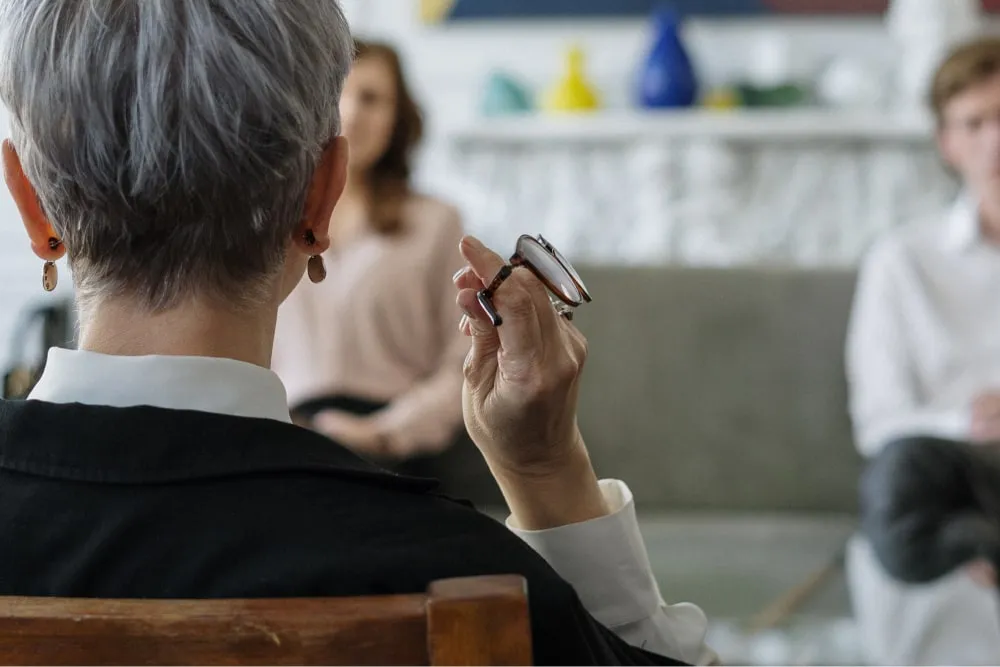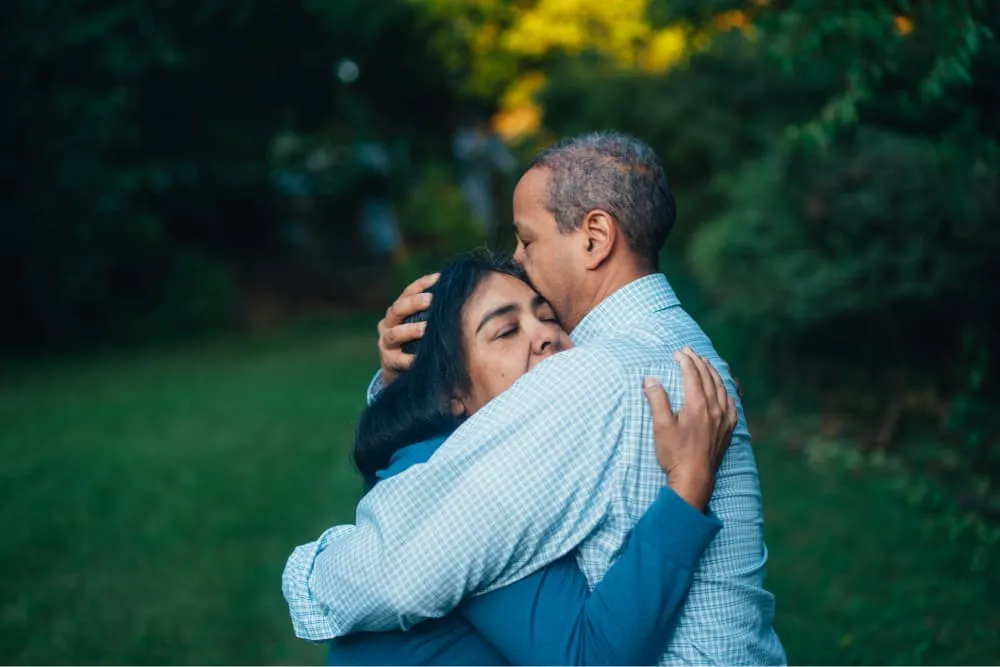Levels of care for diabulimia treatment
As with any serious mental health condition, diabulimia may present in a number of different ways, and patients may struggle with various aspects of the condition. Whatever the symptoms, the individual will greatly benefit from a coordinated treatment plan delivered by professionals.
Several levels of care have been developed to help cater to these different expressions of the condition, allowing patients to get the type and amount of diabulimia help that best suits their needs.
Inpatient hospitalization
Inpatient hospitalization is the most intensive form of care for diabulimia and other serious mental health disorders. This level of care involves a full-time stay at a hospital-type facility, where a patient can access 24-hour medical monitoring and care delivered by a team of health professionals.
2Inpatient hospitalization is generally only recommended in extreme cases, when someone's eating disorder or diabetes complications may be immediately life-threatening or if someone is experiencing another type of mental or physical health crisis.
2 It may also be recommended for those in need of serious help who live far from other diabulimia treatment centers.
The focus of inpatient hospitalization is usually medical stability since the person may be too weak or ill to participate in therapy. Stays are generally very short and last only a few days to a few weeks long, with patients moving on to other types of care once they're considered medically stable.
2 Residential treatment
Residential treatment is another type of 24-hour care, but the facility is more home-like than clinical and designed for longer-term stays. Patients usually stay in these programs for several months, depending on several factors, including their pace of diabulimia recovery, support and stressors at home, and health insurance concerns.
2At this level of care, patients are considered medically stable but generally still struggle with many physical and mental health aspects of their condition. As such, the type of diabulimia help offered at residential facilities is also focused on long-term outcomes and may include a number of multidisciplinary efforts, including individual and group psychotherapy,
nutritional counseling, meal monitoring, medical check-ins, and medication consultation, among other types of treatment.
2 Partial hospitalization program (PHP)
Partial hospitalization programs (PHPs) may represent a step down from a residential program or, in some cases, serve as an alternative to a 24-hour program.
3 these programs are still intensive despite allowing patients to live and sleep at home.
Partial hospitalization programs may last between 3 and 7 days per week, with patients attending care between 6 and 11 hours per day.
2 Schedules depend on many factors and are usually adjusted as a patient continues with their recovery progress.
During a PHP, sometimes also called a "day program," a patient undergoes many of the same types of diabulimia treatment offered in a residential program, including individual and group therapy, meal monitoring, and regular medical check-ins. Some programs may offer additional activities for patients as well.
Intensive outpatient (IOP)
Intensive outpatient programs (IOPs) represent a hybrid type of care, where patients live and sleep at home and commute to treatment between 3-5 days per week, for around 3-4 hours per day.
2 This type of schedule makes these programs ideal for patients who mostly have their eating disorder behaviors under control, those who receive plenty of support from friends and family, and those who are ready to start incorporating social responsibilities into their diabulimia recovery but who may still want or need additional support.
Treatments available in IOPs resemble those in higher levels of care, though sessions will generally be shorter or less intensive. Family therapy is also commonly incorporated at this stage to help household members better prepare for and manage a patient's transition to spending more time at home.
2 Standard outpatient
Standard outpatient treatment is the least intensive form of care, meaning it's usually the first or last level of care most patients experience.
The format of this type of diabulimia help is best suited for those who have their diabetes and eating disorder symptoms mostly under control but who may want or need some additional supervision, guidance, or accountability in their recovery.
For someone with diabulimia, this may mean that someone is no longer restricting insulin but may still need guidance to help manage thoughts and behaviors around eating or body image. There is no time limitation of care, so people may attend standard outpatient sessions with a therapist for several years.
{{link-bank-one-column}}
Psychotherapy for diabulimia recovery
Psychotherapy, also known as talk therapy, is one of the most frequently recommended treatments for eating disorders of all types. Psychotherapy can be utilized during all phases of eating disorder treatment and recovery, depending on the individual’s needs and abilities.
Within that broad category of care, various types of psychotherapy may be more helpful for different patients, depending on their specific history and needs.
Acceptance and commitment therapy (ACT)
Acceptance and commitment therapy (ACT) is designed to help those with diabulimia and other eating disorders gain mental flexibility and a greater sense of peace with their inner thoughts, including those that may be scary or negative.7
The therapeutic method utilizes mindfulness techniques to help patients let go of potentially harmful thoughts, as well as strategies for recognizing and changing unhelpful thoughts and behaviors to create a lasting path to diabulimia recovery.7
Cognitive behavioral therapy (CBT)
Cognitive behavioral therapy (CBT) is often thought of as the leading form of treatment for eating disorders. It centers around the idea that disordered behaviors are borne of disordered thoughts and works by helping patients first recognize and then change these unhelpful impulses.
8When used for diabulimia treatment, for example, CBT may focus on insulin restriction and note that a fear of gaining weight may be motivating this behavior. Patients will then be given strategies for recognizing this thought pattern and changing the resulting behavior.
Cognitive remediation therapy (CRT)
Those with diabulimia not only restrict insulin but also tend to restrict food. Cognitive remediation therapy (CRT) is a promising therapy used to treat eating disorders when food restriction is present.4
This form of treatment focuses heavily on creating more mental flexibility, which may help those with eating disorders who focus on "rigid" ideas around food, eating, and body image.9 When used alongside other types of treatment, CRT has been found beneficial for increasing mental flexibility, as well as self-esteem and other potential driving factors of eating disorders.9
Dialectical behavior therapy (DBT)
Dialectical behavior therapy (DBT) helps individuals develop several important skills, including emotional regulation, stress tolerance, interpersonal navigation, and mindfulness.
5 The overall idea is to help someone better manage the symptoms of their mental health condition by giving them the tools to manage their emotional reactions and interactions better.
The central idea of DBT is that two things can be true at once. Patients in this form of therapy are taught that they can simultaneously love themselves and need to change or improve specific thoughts or behaviors.
5 Family-based therapy
Doctors typically suggest
family-based therapy (FBT) to families with adolescents and young adults with eating disorders, but people of all ages can benefit.
10In general, this type of therapy works to educate and empower parents or guardians to take temporary control over their child's food-related decisions. As time goes on and recovery progresses, the caregivers cede more control back to their child while also learning more about how to make their home a conducive place for recovery.
When used for diabulimia help, family therapy may incorporate additional lessons around the importance of insulin and other aspects of living with diabetes.
10 Group therapy
Group therapy involves regular sessions with groups of patients dealing with similar issues. Led by one or several trained professionals, these groups may discuss general concerns they share or be directed to help one another make individual breakthroughs.
11Group therapy is generally thought to offer a broader perspective and help create a sense of community and support around those struggling with diabulimia or other eating disorders.
Other types of diabulimia help
When someone has Type 1 diabetes, their body produces little or no insulin. Without insulin, the body cannot absorb glucose, and blood sugar levels may rise, resulting in complications such as kidney, heart, and nerve damage.6
Yet, those with diabulimia do not take their insulin as directed to encourage weight loss or otherwise control their weight.1 The threat of these additional complications in the absence of regular insulin use may make other types of counseling or support an important aspect of diabulimia treatment.
Types of therapy for diabulimia
Nutrition counseling and meal support
A person with diabetes has specific nutritional needs. The need to frequently focus on or think about dietary requirements is believed to be one of the causes of diabulimia.1
Many with this condition also worry that insulin harms their weight.1 Nutrition counseling can educate those with diabulimia about the true impact of insulin and how it and different foods affect their body.
Reducing high blood sugar and the possibility of diabetic ketoacidosis—two common physical health problems that stem from diabetes and diabulimia—may be of particular focus in these sessions.
Nutrition counseling also considers the psychological struggles someone with diabulimia may go through and provides assistance in overcoming mental and emotional hurdles. On their way to diabulimia recovery, someone may also work with a dietitian for meal support or help to build a meal plan.
Support Groups
Support groups lack the professional facilitation of therapy groups, but the service helps add a sense of community and support to someone in recovery. Support groups for eating disorders tend to be more casual, with a focus on fellowship and connection.
Diabulimia treatment at Within
It takes incredible courage to seek help for an eating disorder. And for someone entering diabulimia treatment, it's equally important to be met with empathy, support, and understanding.
At Within, we strive to provide these qualities and more for those seeking diabulimia recovery or help with other eating disorders.
Our team of multidisciplinary experts can help patients work on all aspects of their eating disorder, including physical, mental, and emotional concerns. Our unique online program offers PHP, IOP, and outpatient treatment options, which someone can access entirely through our app and website.
Each treatment program is designed to meet the unique needs of each individual. Call our team today to start the journey to recovery.
Get help

























































